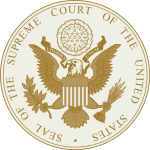 In contemporary legal discussion, “judicial activism” is roundly condemned. This behavior refers generally to any instance in which a court’s opinion is the product of the court following its personal policy preferences instead of the commands of the law.
In contemporary legal discussion, “judicial activism” is roundly condemned. This behavior refers generally to any instance in which a court’s opinion is the product of the court following its personal policy preferences instead of the commands of the law.
The favored behavior is “judicial restraint,” which is usually defined by the values of “originalism” (deference to the original intent of the lawgivers), “textualism” (respect for the language of laws), “self-restraint” (respect for precedent) , and “separation of powers” (deference to the prerogatives of democratically elected legislative bodies and/or the States).
The foundations of “judicial restraint” are originalism and textualism. “Self-restraint” and “separation of powers” are secondary values. Precedent and legislative enactments are binding and commendable only when they are consistent with the original intent and text of higher law, which is not always the case.
The words of any law (statute or a decision) are the best evidence of its meaning because it is presumed that the law’s Framers picked those words to efficiently describe what they intended the law to require or prohibit. (For the sake of convenience I use “Framers” to refer to courts rendering a decision or legislative bodies drafting a statute.) “Textualism” demands respect for the clear meaning of these words. Unless there is some unavoidable flaw or ambiguity in the drafting which makes the intent of the Framers incomplete, incoherent, or ambiguous, courts should treat laws as meaning what they say they mean.
Textualism has its limitations.
 This is my final posting as the Faculty Blogger for the Month of May. Thanks to everyone who has commented on my posts and a special thanks to my colleague Michael O’Hear.
This is my final posting as the Faculty Blogger for the Month of May. Thanks to everyone who has commented on my posts and a special thanks to my colleague Michael O’Hear.
